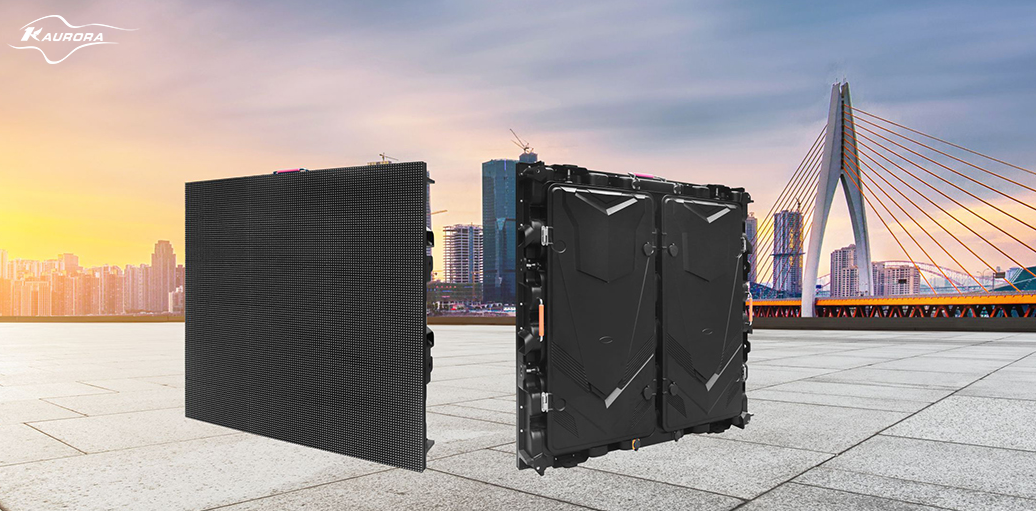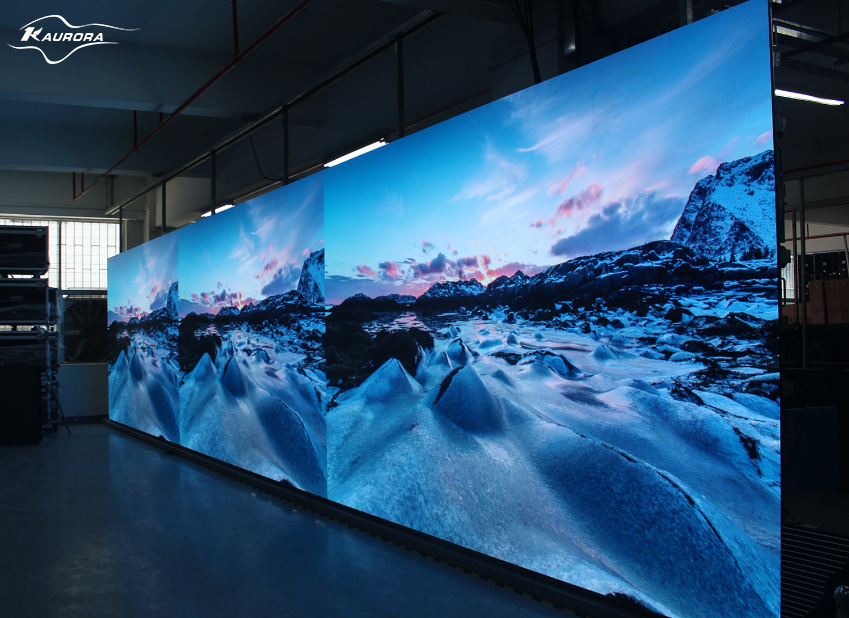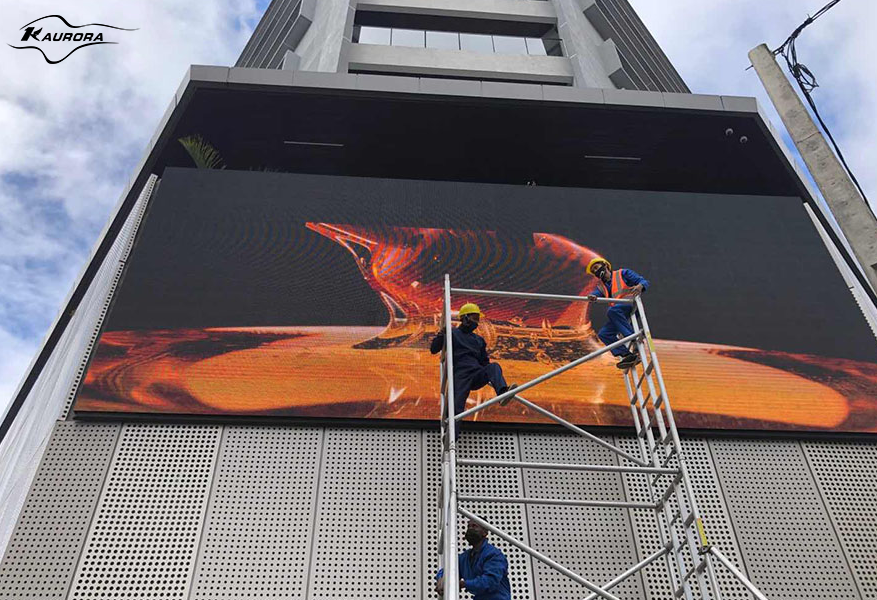What is a full-color LED? Do you know the advantages of LED display screens made with full-color LED? If you want to learn more about full-color LEDs, this blog is for you.
What is a Full-Color LED? A full-color LED, also known as an RGB LED, consists of three individual LEDs in one package - red, green, and blue. By adjusting the intensity of each LED, it is possible to produce a wide range of colors.
Full-color LEDs are commonly used in applications that require color changing or color mixings, such as stage lighting or decorative lighting.

A full-color LED works by utilizing a semiconductor material, typically made of gallium nitride (GaN), to produce light.
The semiconductor is doped with impurities to create an excess of electrons (n-type) or holes (p-type). When a voltage is applied to the LED, electrons, and holes combine, releasing energy in the form of photons.
To produce a specific color, the intensity of each of the three LEDs is adjusted to achieve the desired color. For example, to produce yellow light, both red and green LEDs are turned on.
By changing the intensity of each LED, it is possible to create a wide range of colors.
A full-color LED can be controlled by using a microcontroller or other electronic circuitry. By sending specific signals to the LED, it is possible to adjust the intensity of each LED to produce the desired color.
This allows for a wide range of effects and color transitions, making full-color LEDs a popular choice for lighting and display applications.
Kingaurora is a company with many years of experience in providing professional LED display solutions and supporting services. Their products use 3-in-1 full-color DIP lamps as the light source so that these displays have better application effects.
The full-color LED screen is a type of display that uses LEDs, or light-emitting diodes, instead of conventional LCD backlights. The screen is made up of millions of LEDs that illuminate the screen from behind. The light from each LED spreads out to cover the whole surface area of the screen.
Here is a brief introduction to these advantages:
The full-color LED screen has a color cast angle of less than 110°, which means that the colors remain consistent even when viewed from an oblique angle. This provides a better visual experience for viewers, regardless of their position relative to the screen.

The full-color LED screen has a higher image restoration degree, which means that the images displayed are more vivid and clearer. This is due to the high-quality DIP lamps used in the display, which offer a better color gamut and higher contrast ratio.
The full-color LED screen has a brightness of 8000nits, which is significantly brighter than other types of displays. Despite this high brightness, the screen consumes 50% less energy than other displays, making it more energy-efficient and cost-effective.

The full-color LED display has a lower pixel pitch integration rate, which means that it requires less maintenance than other types of displays. This is because the screen is less prone to pixel outages and other defects, which reduces the need for repairs and replacements.
Full-color LED display screens are commonly used for advertising, as they provide a large, bright, and eye-catching way to display products or services. They are often used in public squares and on highways to grab the attention of drivers and pedestrians.
These LED screens are used to display important information, such as traffic updates, emergency messages, and weather alerts. They are often installed in public squares and on highways to provide critical information to the public.
You might be wondering what the best use for a full-color LED screen would be. The answer is simple: a full-color LED display screen can be used for anything you can imagine.
Here are some ways to help you make better use of these displays:
Timing and scheduling are critical factors in maximizing the benefits of an LED display screen. The content should be scheduled to coincide with peak times of the day or week when the target audience is most likely to be present.
This could involve running ads during specific hours or days of the week, or scheduling specific content to run at specific times. It's also important to ensure that the content is consistent across all displays to create a cohesive message and avoid confusion.
To maximize the benefits of an LED displays, it's important to monitor its performance and track the effectiveness of the content. This can be done using analytics tools that track metrics such as engagement, views, and click-through rates.
This information can be used to fine-tune the content and scheduling to ensure maximum effectiveness and ROI.
In summary, maximizing the benefits of an LED screen requires careful consideration of content creation, placement and location, timing and scheduling, and monitoring and analytics.
By optimizing these factors, businesses can create a dynamic and engaging visual display that captures the attention of their target audience and delivers a strong ROI.
In summary, Kingaurora's full-color LED screens offer several advantages over other types of displays, including a better visual experience, more vivid and clearer images, low power consumption, and low maintenance requirements.
These benefits make them a popular choice for a wide range of applications, from advertising and entertainment to education and communication.

3th Building,Gaosite Zone Pingshan
New District, Shenzhen

sevice88@kingaurora.com
3th Building,Gaosite Zone Pingshan
New District, Shenzhen